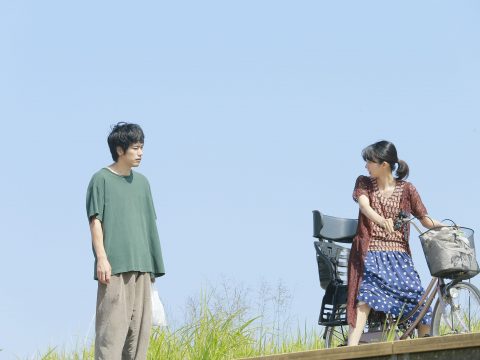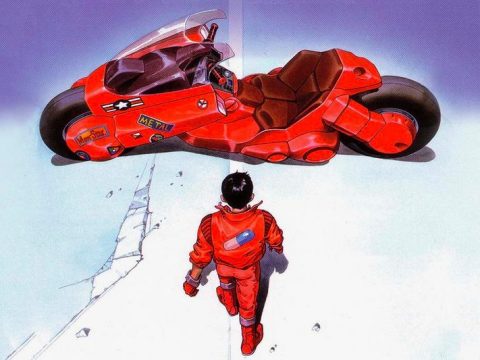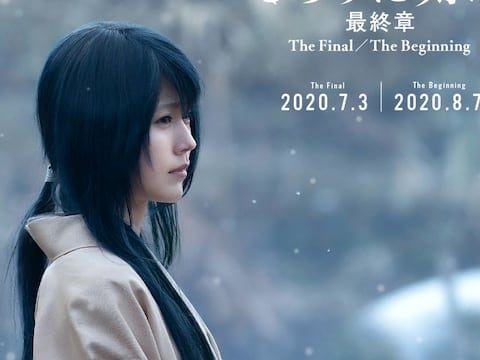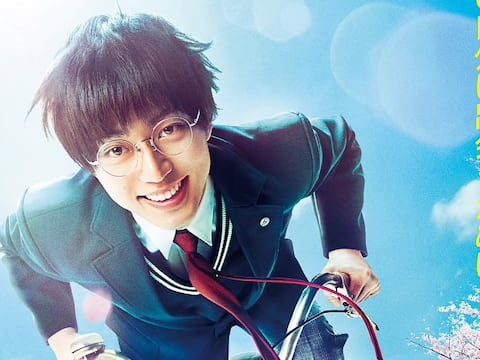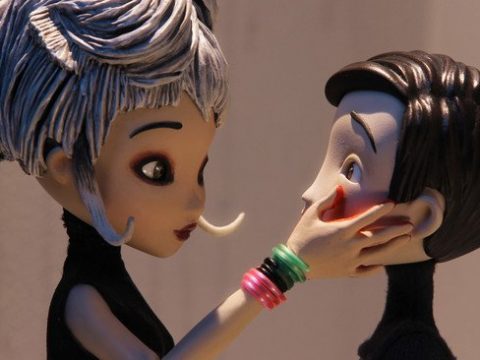
Hana is the 2006 effort from director Hirokazu Kore-Eda, who garnered critical success with previous efforts like Maborosi, After Life, Distance, and Nobody Knows (among others, he scored the Best Director award at both the Venice Film Festival and the Blue Ribbon Awards), and is perhaps best known for the kind of films that offer up somber reflections on concepts like death and loss. Not exactly the type of flick that one yearns for at every waking moment, but with the right mood, Kore-Eda’s work can strike a chord in pretty much any audience.
This particular tale follows Aoki Sozaemon (Junichi Okada)—a samurai living in a set of shamble-shack row houses among the local peasants of Edo—on a quest for vengeance that doesn’t follow the typically action-spattered route of most revenge stories. Rather, Aoki is hesitant in many ways in pursuing the final wish of his dying father. As much as he’d like to fulfill his obligation of finding the killer and avenging his death, Edo is a big place to be searching for one man, and Aoki has never even cut someone with his sword, much less killed with it.

Hell, even when he does find the man he’s looking for, Aoki is hardly in any condition to fight. He’s dropped the sword, as many have in this relatively battle-free period, in favor of a brush and paper. Where he lacks skill with a blade, his ability to teach locals how to write and use an abacus soars. It’s his position in life that begins to raise issue with his ultimate goal, and his reluctance stems from both the aforementioned lack of skill and an ever-growing lack of desire to kill at all. This only grows more when he finally discovers his target, played by Tadanobu Asano, coming home to his wife and child.
About a third of the way through Hana, the plot begins to meander about town, spreading its focus more on the residents of the row houses as a whole than solely on Aoki and his quest, but it’s not exactly an unwelcome deviation. The cast is peppered with well-known supporting talent like Renji Ishibashi and Susumu Terajima, and performances are solid throughout, lending an air of family and connectedness to the daily lives of the film’s colorful peasants.

Hana‘s look is as solemn and carefully conducted as its narrative, something that should stick out in particular to fans of Kore-Eda’s previous work, a decent portion of which share the cinematography of Yutaka Yamazaki. There’s a lot of visual variety in moments that jump from the interior of a dimly lit shack to the bright burst of cherry blossoms, or the impossibly green shore of a nearby stream.
 At a little over two hours, Hana doesn’t seem nearly as long as it is. That’s kind of surprising considering the quiet and introspective content, but the movie is smoothly paced, and is populated with enough interesting characters to keep things rolling—though it wouldn’t be surprising if more fidgety viewers might have a hard time getting past Hana being a “samurai film•bCrLf with zero action. As contemplative as it gets at certain moments, it’s filled with at least as much humor, none of which comes off as forced or silly.
At a little over two hours, Hana doesn’t seem nearly as long as it is. That’s kind of surprising considering the quiet and introspective content, but the movie is smoothly paced, and is populated with enough interesting characters to keep things rolling—though it wouldn’t be surprising if more fidgety viewers might have a hard time getting past Hana being a “samurai film•bCrLf with zero action. As contemplative as it gets at certain moments, it’s filled with at least as much humor, none of which comes off as forced or silly.
FUNimation’s on the right track with their live-action releases, though the special features are thin outside of an Opening Day Stage Greeting and a Trailer. Bonus content aside, this is the kind of flick pretty much anyone should be able to enjoy, even if, much like Kore-Eda’s previous efforts, it might require just the right mood to get the most out of it.
Studio/Company: FUNimation
Available: Now
Rating: TVPG


